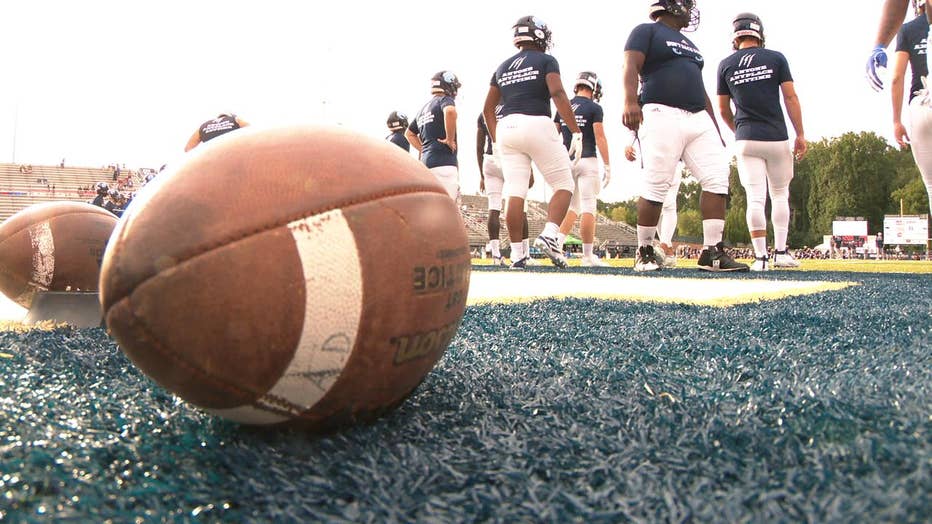Weight gain and high blood pressure linked to heart problems in college football players
ATLANTA - Before Pellom McDaniels III fell in love with academia and found his second career as the Curator of African American Collections for the Rose Library at Emory University, football was his world.

Pellom McDaniels, a former NFL player, was diagnosed with high blood pressure after he left the playing field for graduate school.
"I loved it, I loved it," McDaniels says. "I played football in high school, I played football in college."
After college, he played for a decade in the NFL, most of it as a defensive tackle for the Kansas City Chiefs. But, when McDaniels started playing as a freshman at Oregon State, he says, he was a pretty small guy, relatively speaking.

Emory University researchers found weight gain and high blood pressure in college football players could be raising their risk of heart disease. (FOX 5 Atlanta)
"I went to college 200 pounds, maybe 225," McDaniels says. "My first few years, I was a lightweight, gaining 10 pounds here, 10 pounds there. By senior year, I was 265 pounds."
Once he joined the pros, he put on more weight.
"I topped out at 300 pounds," he says.
Size matters in football, but what is all that extra weight doing to a young player's heart?

Emory University researchers found weight gain and high blood pressure in college football players could be raising their risk of heart disease.
Emory's Chief of Sports Cardiology Dr. Jonathan Kim headed up a recent study to try to answer that question, looking for the first signs of heart disease in college football players.
"A lot of this stems from the fact that the number one killer of retired football players is heart disease," Dr. Kim says. "Regardless of what you hear about neurologic diseases, we have to remember that, as it is with the general population, heart disease is the number one killer."
Dr. Kim and his team followed 126 college players at Georgia Tech and Furman University for 3 years, tracking their weight, blood pressure and heart function.

Dr. Jonathan Kim led a team of Emory University researchers who studied the consequences of college football players' weight gain and high blood pressure.
As the players gained weight, the researchers found, their blood pressure rose.
"Over the course of these three years, it was a constant increase," Dr. Kim says.
The researchers found the weight gain and high blood pressure caused changes in the players' heart structure and function, including a stiffening of their arteries and thickening of the wall of the heart's left pumping chamber, something known as concentric left ventricular hypertrophy.
Linemen, like McDaniels, tend to be heavier, but Dr. Kim says the findings were consistent no matter what position a player was assigned.
"It doesn't surprise me," Pellom McDaniels says. "I've lost a lot of teammates, a number of teammates, guys I've played with and guys I've admired from afar, have died, due to heart illness or sleep apnea."
After he left football, Pellom McDaniels was diagnosed in graduate school with borderline high blood pressure.
Today, he takes blood pressure medication and gets cardiac checkups every six months.

Pellom McDaniels, a former NFL player, was diagnosed with high blood pressure after he retired from pro football.
Dr. Kim believes more needs to be done to identify young players who might be at risk of developing heart disease, and protect them as they transition to life off the playing field.
"[We need to be] tracking blood pressures for those where the blood pressure is high," Kim says. "Or, if there is a tremendous amount of weight gain, if there is a concern for sleep apnea, ensuring those athletes are referred for sleep studies, and just monitoring them closely."
Pellom McDaniels has changed his workouts to include more aerobic exercise, which can lower heart risks, and less weight training.
Dr. Kim says he's hoping the sports medicine community will pay more attention to preventing heart disease long before it sidelines players for good.

